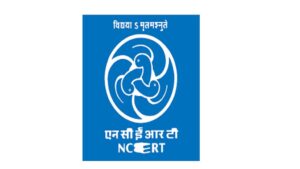Table of Contents
Introduction
A high-level committee constituted by the National Council of Educational Research and Training (NCERT) to revise the school curriculum has recommended that “India” should be replaced by “Bharat” in all textbooks, panel chairperson CI Issac announced.
Why has ‘Bharat’ caused controversy?
“Bharat” has also been used in a G20 booklet meant for foreign delegates titled – “Bharat, The Mother Of Democracy”. “Bharat is the official name of the country. It is mentioned in the Constitution as also in the discussions of 1946-48,” the booklet says.
The controversy over the invitation has sparked debates about how language and symbols play a part in creating a country’s identity. The definition of a nation’s culture, history, and collective memory is greatly influenced by its language. The decision to use “Bharat” rather than “India” reflects the ongoing discussion regarding the importance and relevance of the nation’s colonial heritage and how it has influenced national identity.
NCERT “USE BHARAT NOT INDIA”
NCERT chairperson Dinesh Saklani said no decision had been taken yet on the panel’s recommendations. “NCERT states that since the development of new syllabus and textbooks is in the process and for that purpose various curricular area groups of domain experts are being notified by the NCERT. So, it is too premature to comment,” the body wrote on X later.
The development marks the latest episode in an ongoing controversy over the name that began last month after an invitation for a G20 dinner sent out by President Droupadi Murmu in her capacity as “President of Bharat” instead of “President of India” set off furious speculation that such a move could be part of the legislative agenda in the special session of Parliament.

Days later, the nameplate of Prime Minister Narendra Modi during the G20 Summit in New Delhi also read “Bharat” instead of “India”.
The special session later passed a historic bill setting aside seats for women in national and state legislatures but speculation around replacing India with Bharat has refused to die down.
Article 1(1) of the Constitution states “India, that is Bharat, shall be a Union of States”.
The Opposition accused the government of election gimmicks and suggested that the name change was inspired by the 26-party grouping opposing the ruling Bharatiya Janata Party (BJP) calling themselves the Indian National Developmental Inclusive Alliance, or INDIA.
Karnataka deputy chief minister DK Shivakumar said that the word Indian was used for institutions like the Reserve Bank of India, Indian Administrative Service, and that the “Republic of India” was written on Indian passports.
Issac said that the committee — one of the 25 formed by NCERT in 2021 to prepare position papers on various subjects and themes — recommended introducing classical history instead of ancient history in textbooks.
He said that the British divided Indian history into three phases — ancient, medieval and modern.
“The term ancient means old. The ancient era being taught presently paints a picture as though the country was in darkness and there was no scientific awareness during that time. However, there are so many examples of India’s achievements in that age including Aryabhatta’s work on the solar system model,” he said.
“Therefore, we have suggested that the classical period of Indian history be taught in schools along with medieval and modern periods,” Issac said.
He said that the committee also recommended highlighting Hindu victories in textbooks.
“Our failures are presently mentioned in the textbooks. But our victories over the Mughals and sultans are not,” said Issac, who is also a member of the Indian Council of Historical Research (ICHR).
Besides, the committee also recommended the introduction of the Indian Knowledge System (IKS) in the curriculum of all subjects. The National Education Policy (NEP) 2020 emphasises on teaching the “rich heritage of ancient and eternal Indian knowledge and thought” as a guiding principle.
NCERT is revising the curriculum of the school textbooks in line with the National Education Policy (NEP) 2020. The council has recently constituted a 19-member National Syllabus and Teaching Learning Material Committee (NSTC) to finalise the curriculum, textbooks and learning material for these classes.
Issac joined the Akhil Bharatiya Vidyarthi Parishad (ABVP), the RSS’ student wing, in 1975. Currently, he is the state working president of the Kerala unit of the RSS-linked think tank Bharatheeya Vichara Kendram.
Must Read
CENTRE BRINGS 3 NEW BILLS TO REVAMP CRIMINAL LAW
FILE A CASE AGAINST A PERSON WHO HAS NOT RETURNED YOUR MONEY
